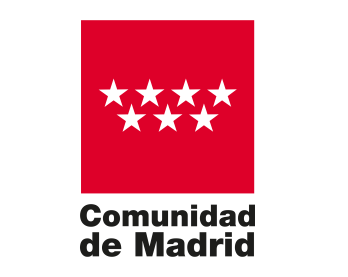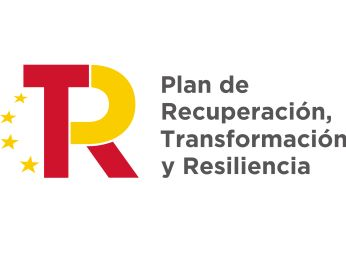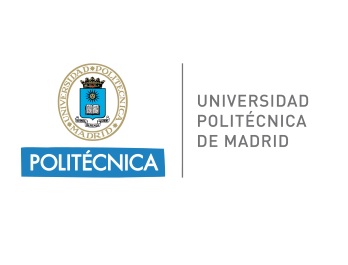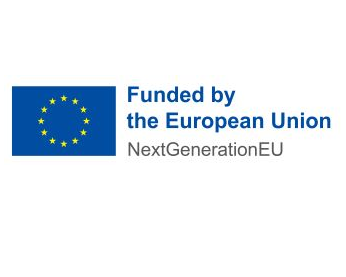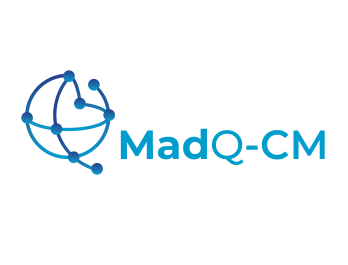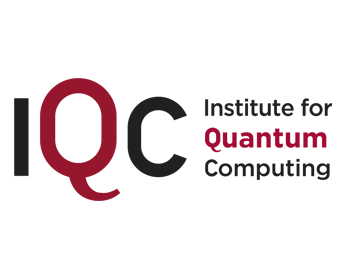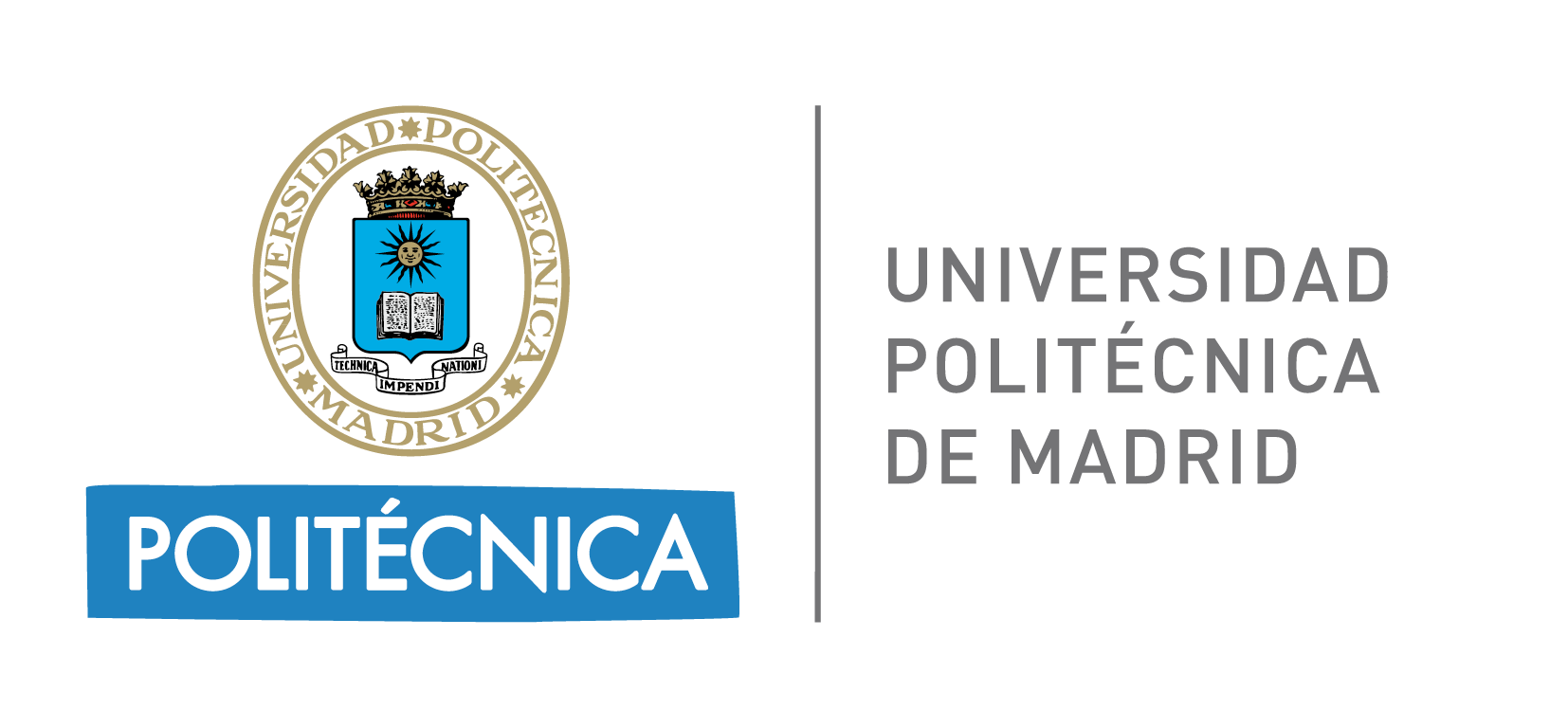ETSI and the Institute for Quantum Computing are thrilled to organize the 2025 edition of their joint event, the ETSI/IQC Quantum Safe Cryptography Conference. This year, the event will be hosted physically by the Universidad Politécnica de Madrid (UPM) on 3-5 June 2025 in Madrid (Spain).
Background
We increasingly rely on cyber technologies, and hence are ever more vulnerable to cyber-attacks. As progress toward a cryptographically relevant quantum computer advances, these attack vectors grow and the imperative to prepare for a transition to quantum secure technologies continues to increase.
This is a continually evolving and complex journey and much remains to be understood and navigated.
About the Conference
Designed for members of the business, government, and research communities with a stake in cryptographic standardization, this forward-looking conference facilitates the knowledge exchange and collaboration required to transition cyber infrastructures and business practices to make them safe and resilient in an era with quantum computers. It will showcase both the most recent developments from industry and government and cutting-edge potential solutions coming out of the most recent research.
This conference is a perfect opportunity to determine your next steps, learn from experts and network with others going through the process. Nowhere else can you encounter the latest research in such an actionable way, with specific tracks for both executives and technical experts.
The conference is held in English.
Attending as a regular delegate
Participation is open to all interested and free of charge upon mandatory registration.
Catching up on the 2024 edition of the event:
Read the ETSI Press Release and watch this webinar Get Ready for Quantum Era: Insights from the ETSI/IQC QSC Conference with Michele Mosca, Donna Dodson, Lily Chen, Jaya Baloo, Jaime Gomez Garcia, Matt Campagna (17 June 2024).
To be notified of the major deadlines, please subscribe to this mailing list.
Please note that there might be some tweaks in the agenda.
- 3 June: Executive Track
08.15 - 9.00: Conference Check-in
09.00 OPENING and KEYNOTE SPEECHES
Speakers to be announced shortly
10.15 : Coffee Break
10.45 - PANEL 1: Policy in the Quantum Age: Building Bridges Between Innovation and Regulation
Moderated by Axel Ferrazzini, GovStratThis panel will bring together institution and government leaders to discuss the critical role of collaboration between the public and private sectors in shaping consistent and forward-thinking policies for quantum technologies. By aligning regulatory frameworks with industry innovation, we can foster the certainty needed to unlock the full potential of quantum advancements and drive global progress.
Panelists to be announced shortly.
11.45 - PANEL 2: Quantum Safety in the Financial Sector: Towards a Global Action Plan
Moderated by Jaime Gómez García, Grupo SantanderThe publication of the NIST PQC standards in 2024 marked a turning point, driving increased awareness in the financial sector. This was reflected in advisories, position papers, and reports from key stakeholders. In recent years, there have been individual efforts by Central Banks towards developing an initial preparedness plan.This session will explore the critical role of cryptography in financial security, the main challenges of transitioning to post-quantum cryptography, and strategies for achieving a globally aligned roadmap.
- Tong Lee Lim, Monetary Authority of Singapore
- Francisco Tur, European Central Bank
- Suman Ziaullah, Financial Conduct Authority
- Jelena Zelenovic, European Investment Bank
13.00 : Networking Lunch
14.30 - Panel 3: Quantum-Safe Cryptography for Service Providers: Real-World Implementations and Rollouts
Moderated by Martin Charbonneau, NokiaThis panel aims to address the critical need for quantum-safe cryptography within the service provider industry. As quantum computing advances, the risk to current cryptographic systems increases, making it imperative for service providers to transition to quantum-safe solutions.
The panel will feature representatives from various types of service providers, including telecom service providers, cloud service providers (CSPs), managed service providers (SysINT, VAR), and webscalers.- Lory Thorpe, GSMA
- Rafael Canto Palancar, Telefonica
- Matt Campagna, AWS
- Kenneth Hwang, SingTel
- Enrique Abero, Kyndryl
15.45 - Coffee Break
16.15 - Panel 4: Quantum-Safe Transition for Critical infrastructures- Operational technologies in the Quantum Era
Moderated by Bruno Huttner, ID QuantiqueThis panel aims to discuss the transition to quantum-safe cryptography for Critical Infrastructures, such as transport, water, energy and telecom. More generally, Critical Infrastructures represent an example of Operational Technologies (OT), which manage the hardware and software that monitors and controls devices, processes, and infrastructure. Information Technologies (IT) combine technologies for networking, information processing, data centers, and the cloud. While IT systems manage data and applications, OT devices control the physical world. The quantum threat has been mostly seen from the point of view of IT. OT will also be impacted by the quantum computer and have specific features, which require a different approach. In particular, OT requires first and foremost availability and integrity, with confidentiality being an add-on value. In this sense, OT is not truly sensitive to the “harvest now decrypt later” type of attacks. However, due to the extremely long lifetime and cost of OT devices, the transition to quantum-safe still needs to start now. The panel will discuss the specific requirements of OT related to the quantum-safe transition.
- Julia Dewitz-Würzelberger, Verbund
- Rouven Floeter. Hitachi
- Emilio Hughes Salas, BT (tbc)
- Carlo Page, Xairos
- Aramco, Speaker to be named
17.30: Close of the Executive Track
- 4 June - Technical Track
08.30 - 9.00: Check-in
09.00 Opening Remarks
Michele Mosca, Institute for Quantum Computing (IQC), Programme Committee Chair09.05 SESSION 2.1: National and Multi-National Initiatives
Chaired by Colin Whorlow, NCSC- An Update on the NIST PQC Project
Dustin Moody, NIST - PQC in China
Hong Xiang, Chongqing University - Developing the European Roadmap on PQC; We Are on Our Way
Stephan Ehlen, BSI (Germany) & Anita Wehmann, Ministry of the Interior and Kingdom relations (The Netherlands) - The Governance of the PQC Transition in the EU
Laima Jančiūtė, University of Amsterdam - Commercialization Strategy for Quantum Information Technology in Korea
Younghee Kim, National Information Society Agency (NIA) - National Cryptology Center (Spain)
Speaker to be confirmed
10.30 - 11.00 : Coffee Break and Poster Visits
11.00 SESSION 2.2: Efforts within the Financial Sector
Session Chair to be nominated- Quantum-Readiness for Central Banks
Angela Dupont, BIS - Multivendor, Multiprotocol Quantum-Safe IPSEC Dynamic Multipoint VPNs in a Bank Network
Jaime Gómez García, Santander - Application of Quantum Cryptography in Financial Field
Wei Qi, CAS Quantum Network Co., Ltd - LGT Private Banking - Perspective on Migrating to Quantum Safe Cryptography
Richard Marty, LGT Financial Services AG - Paving the Way Towards Quantum Resilient TARGET Services: Sharing Experiences on Raising Awareness, Gathering Buy-in, and Drafting a Roadmap
Francisco José Herrera Luque, European Central Bank
12.30 : Networking Lunch
13.45 - SESSION 2.3: Standardization and Certification Efforts
Session Chair to be appointed- An update on ETSI ISG QKD
Martin Ward, ISG QKD Chair, Toshiba - An update on ETSI TC CYBER QSC
Matt Campagna, ETSI CYBER QSC Chair, AWS - IETF Update
Speaker to be confirmed - Standardizing Classical Post-Processing for Secure Quantum Cryptography
Esther Hänggi, Lucerne University of Applied Sciences and Arts - Constructing PQ Solutions with CC-Certified Physical Security
Peter Pessl, Infineon Technologies :
15.15 : Coffee Break & Poster Visits
15.45 - SESSION 2.4: QKD Keys within Networks and Protocols
Session Chair to be appointed- Uncharted Territory: Utilizing QKD Keys in the TCP/IP Protocol Stack
Xinhua Ling, Amazon Web Services - Practical Implementation of a Quantum-safe Crypto-agile Network
Obada Alia, JPMorganChase - The Telefonica Quantum-Safe Journey
Rafael Canto Palancar, Telefonica
16.45- SESSION 2.5: Hybrid Solutions and Signatures
Session Chair to be appointed- Quantum-Safe Authenticated Key Exchanges: The Present and the Future of Hybrid Approaches
Christoph Striecks, AIT Austrian Institute of Technology - Optimized Use Cases for the Available Quantum-Resilient Encryption and Signature Primitives
Bertram Poettering, IBM Research Europe – Zurich - Practical Long Term Quantum Resistance
Volker Krummel, Utimaco - Quantum Resistant Strategies for Digitally Signed Long-Term Documents
Juan Carlos Fernández Jara, Entrust
18.00 End of Afternoon / Networking Cocktail
- An Update on the NIST PQC Project
- 5 June - Technical Track
09.00 SESSION 3.1: QKD Networks and Satellites
Session Chair to be nominated- DemoQuanDT - First Long-Haul QKD Network in Germany. Lessons Learnt from the Operator’s Perspective
Oleg Nikiforov, Deutsche Telekom - EAGLE-1: Anticipating the Integration with a Satellite-Enabled QKD Solution
Loula Beck, SES S.A. - Global, Quantum-Safe Networks Enabled by Satellite
Stefan Lespezeanu, Honeywell - CSIC’s Perspectives on Quantum Satellite and Ground-Segment Networks
Verónica Fernández, Spanish National Research Council (CSIC) - Enabling Secure, Interoperable Quantum Networks in Cross Domain Environments
Johanna Sepúlveda, Airbus
10.30 - 11.00 : Coffee Break and Poster Visits
11.00 - SESSION 3.2: Cryptographic Agility & Migration
Session Chair to be nominated- Software-Defined Cryptography: Enabling Crypto Agility in Enterprise IT
Jihoon Cho, Samsung SDS - Real World Use Cases for Cryptographic Agility using Quantum Resilient Algorithms
Skip Sanzeri, QuSecure - Cryptographic Agility and Migration – Different Use Cases, Different Inventory
Michael Osborne, IBM Research - Global Services: Migration Paths and Roadmaps for Achieving Quantum Safety and Cryptographic Resilience
Marios Thoma, Cyberecocul - Lessons learned from the field: Cryptographic Insight from the Modern Enterprise
James Howe, SandboxAQ: - Revisions and Extensions of the Dutch PQC Migration Handbook
Vincent Dunning, TNO
12.45 : Networking Lunch
14.00 - SESSION 3.3 : Symmetric Key Solutions
Session Chair to be appointed- Symmetric Key Infrastructures
Thorsten Groetker, evolutionQ - Advancing Quantum-Safe Communications with Symmetric Key Agreement
Ettore Pulieri, Telecom Italia Sparkle
14.30 - SESSION 3.4 : Transitioning to PQC
Session Chair to be appointed- Secure Transactions: Adapting Secure Protocols for Post-Quantum Cryptography: Lessons from eSIMs
Emmanuelle Dottax, IDEMIA - Hybrid Key Exchange and the Evolution of Secure Networks
Tony Rosati, evolutionQ - Crypto Agility and Hardware: A Strategic Approach to Post-Quantum Security
Tommy Charles, HP - Migrating to PQC compatible PKI: Insights from ING Bank’s Experience
Gamze Tillem, ING Bank - Automated Cryptographic Discovery Inventory (ACDI) Tool
Wei Wen Ching, Cyber Security Agency of Singapore
16.00 - Wrap Up Discussion and Final Comments
Michele Mosca, Programme Committee Chair and Members of the Programme Committee and Audience
16.30 Event Closure
- DemoQuanDT - First Long-Haul QKD Network in Germany. Lessons Learnt from the Operator’s Perspective
- 3-5 June - Posters
- Hardened Quantum Key Management System
Ciaran Mullan, Adva Network Security GmbH - Secure personalised data transmission with QKD
Richard Schilling, Bundesdruckerei GmbH - CQC-QHE: Classical-Quantum Circuits for Quantum Homomoprhic Encryption
Pablo Fernandez Ortiz, Complutense University of Madrid - Standard QKD Interfaces for Oblivious Keys
Diogo Matos, Instituto de Telecomunicações – Aveiro - Pioneering Quantum Solutions: Kyndryl's Path to a Quantum-Safe Future
William Genovese, Kyndryl - Quantum-Secured Time and Frequency Dissemination
Gaetano Russo, Leonoardo - Developing capabilities for the evaluation and security assurance of QKD systems
Daniel Munoz, National Physical Laboratory (NPL) - Securing Europe's Digital Future: Post-Quantum Cryptography (PQC) Transition with QUBIP & PQ-REACT
Akis Kourtis, NCSR Demokritos - Working with post-quantum digital signing for PDF documents
Teik Guan Tan, pQCee Pte Ltd - Enhancing Quantum Key Distribution (QKD) with Post-Quantum Cryptography (PQC): A Secure Key Transfer Framework
Prasanna Ravi, PQStation Singapore - Quantum safe PKIs for electric vehicle charging infrastructures
Elsa Corniani, Ricerca sul Sistema Energetico – RSE S.p.A. - Global initiatives in quantum technologies
Mabel Mota, Universidade SENAI CIMATEC - Scalable, non-PQC Authentication in QKD Networks
Momtcheel Peev, Huawei Technologies Duesseldorf GmbH - MUTLISS: a protocol for long-term secure distributed storage over multiple remote QKD networks
Marc Kaplan, VeriQloud - Santander Quantum Threat Program Insights
Juan F. Capristan W. , Santander - SDN-Based Orchestration for Multi-Vendor and WDM QKD, with Integrated Transport Networks
Min Hyung Kim, SK Telecom Co - Red Means Go: An Adversarial Approach to Robust and Accelerated Assurance in Hybrid Quantum-Classical Communications
Andrew Peck, Loughborough University - End-to-End PKI and HSM Integrations Using Quantum Safe Algorithms
Tomas Gustavsson, Keyfactor - Current Status of Standardization and Regulation in Quantum Technology in Korea
Jinwook Choi, National Information Society Agency (NIA)
- Hardened Quantum Key Management System
Escuela Tecnica Superior de Ingenieros Industriales
C/ José Gutierrez Abascal, 2
28006 Madrid
Public Transport
- Autobus:7-12-14-27-40-45-147-150
Itineries by bus bus touristic map
Metro:Gregorio Marañón (Line 7 and line 10)
Cercanías:Nuevos Ministerios (línea C-1, C-3, C-4, C-7, C-8, C-10)
Hotels Check Madrid Convention Bureau
Venue district: El Viso / Chamartin
ETSI and IQC are thankful for the dedication of the following Programme Committee Members:
- Michele Mosca, Institute for Quantum Computing, University of Waterloo (Programme Committee Chair)
- Jaya Baloo, Stealth Startup AI & Cybersecurity
- Johannes Buchmann, TU Darmstadt
- Matthew Campagna, Sr. Principal Engineer, Amazon Web Services
- Sofia Celi, Brave
- Martin Charbonneau, Nokia
- Lily Chen, NIST
- Donna Dodson, EvolutionQ
- Axel Ferrazzini, GovStrat, ETSI Board Member
- Jaime Gómez García, Grupo Santander
- Bruno Huttner, IDQuantique
- Ayesha Khalid , Queen's University Belfast
- Alexander Ling, NUS
- Vicente Martin, UPM
- Sarah McCarthy, IQC, University of Waterloo
- Mark Pecen, Approach Infinity, Inc.
- Bart Preneel, KU Leuven
- Johanna Sepulveda, Airbus
- Masahiro Takeoka, National Institute of Information and Communications Technology, Japan
- Martin Ward, Toshiba Europe
- Colin Whorlow, Head of International Standards, NCSC
- Hong Xiang, Chongqing University
 Michele Mosca - University of Waterloo, Programme Committee Chair
Michele Mosca - University of Waterloo, Programme Committee Chair
Michele Mosca is co-founder of the Institute for Quantum Computing at the University of Waterloo, a Professor in the Department of Combinatorics & Optimization of the Faculty of Mathematics, and a founding member of Waterloo's Perimeter Institute for Theoretical Physics. He is co-founder and CEO of the quantum-safe cybersecurity company, evolutionQ, and co-founder of the quantum software and applications company, softwareQ. He serves as Chair of the board of Quantum Industry Canada. He started working in cryptography during his undergraduate studies and obtained his doctorate in Mathematics in 1999 from the University of Oxford on the topic of Quantum Computer Algorithms. His research interests include algorithms and software for quantum computers, and cryptographic tools designed to be safe against quantum technologies. He co-founded the not-for-profit Quantum-Safe Canada, and the ETSI-IQC workshop series in quantum-safe cryptography and is globally recognized for his drive to help academia, industry and government prepare our cyber systems to be safe in an era with quantum computers. Dr. Mosca’s awards and honours include 2010 Canada's Top 40 Under 40, Queen Elizabeth II Diamond Jubilee Medal (2013), SJU Fr. Norm Choate Lifetime Achievement Award (2017), and a Knighthood (Cavaliere) in the Order of Merit of the Italian Republic (2018).
 Obada Alia, JPMorganChase
Obada Alia, JPMorganChase
Obada Alia, PhD, is a Lead Applied Researcher in Quantum Communications and Cryptography at the Global Technology Applied Research Center of JPMorganChase. His role explores the use of quantum cryptography and next-generation communication networks in the financial services industry. Previously, he held the position of Senior Research Associate at the University of Bristol, where he worked on the coexistence of quantum and classical technologies in dynamic networks. Obada holds a PhD in Quantum Communication from the University of Bristol, along with master's and bachelor's degrees in Telecommunications, Engineering and Electrical and Electronics Engineering from the same university. His doctoral research focused on the integration of quantum and classical technologies within telecommunication infrastructure. Throughout his academic journey, Obada actively contributed to prominent projects, including the UK Quantum Communication Hub 1\&2 and the H2020 UNIQORN project.
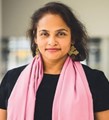 Jaya Baloo, StealthStartup Ai & Cybersecurity – Member of the Programme Committee
Jaya Baloo, StealthStartup Ai & Cybersecurity – Member of the Programme Committee
Jaya Baloo is the COO of Stealth Startup AI & Cybersecurity and has been working in the field of information security with a focus on secure network architecture for over 20 years. She is the former CSO of Rapid7, CISO of Avast, and prior to that was CISO at KPN, the largest telecommunications carrier in the Netherlands. Jaya serves on boards of the NL’s National Cyber Security Centre, TIIN Capital, the NOS, and was the former Vice Chair of the EU Quantum flagship. She is also on the faculty at Singularity University. Jaya is recognized as a top 100 global CISO and ranks among the top 100 security influencers worldwide. In 2019, she was selected as one of the 50 most inspiring women in the Netherlands by Inspiring Fifty. In 2022 she received an honorary doctorate from the University of Twente for her contributions to the field of Cybersecurity.
Loula Beck, SES S.A.
Loula Beck is a Software Engineer at SES Techcom. She graduated from Grenoble INP-Ensimag in 2018 with an embedded system and software Master of Engineering. Since then, she contributed to various Quantum Key Distribution projects, with a special focus on software design and development of Key Management System for space specific QKD. She is currently responsible for the design and development of the EAGLE-1 KMS software component.
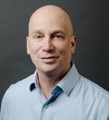 Matthew Campagna, Amazon Web Services - Member of the Programme Committee
Matthew Campagna, Amazon Web Services - Member of the Programme Committee
Matthew Campagna is a Sr. Principal Engineer & Cryptographer for Amazon Web Services Inc.’s. He oversees the design and analysis of cryptographic solutions across AWS. He is a member of the ETSI Security Algorithms Group Experts (SAGE), and Chairman of ETSI TC CYBER’s Quantum Safe Cryptography group. Previously he managed Certicom/BlackBerry’s Cryptography Research Group focused on the development of intellectual property and standardization for elliptic curve cryptography. He holds a doctorate in Mathematics from Wesleyan University.
 Rafael Cantó Palancar, Telefonica
Rafael Cantó Palancar, Telefonica
Rafael Cantó Palancar holds an MSc in Telecommunication Engineering from the Universidad Politécnica de Madrid and a BSc in Business Administration. Since joining Telefónica I+D in 1998, he has contributed to a wide range network technologies, including optical communications and radio access, while leading teams in Photonic Networks and Fixed Access. Since 2013, his work has focused on IP and Transport Technologies. Currently, he heads the IP Networks and Emerging Technologies group at Telefónica CTIO, driving, among others, initiatives in secure connectivity and quantum networks. Rafael has been deeply involved in several research EU-level projects related to Quantum Key Distribution (QKD) technologies.
 Sofia Celi, Brave - Member of the Programme Committee
Sofia Celi, Brave - Member of the Programme Committee
Sofía Celi is a cryptography researcher at Brave. She researches around post-quantum cryptography, privacy-enhancing technologies and secure messaging. She is the co-chair for the PQUIP working group at IETF, of the HRPC group at IRTF and of anti-fraud community group at W3C.
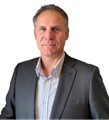 Martin Charbonneau, Nokia - Member of the Programme Committee
Martin Charbonneau, Nokia - Member of the Programme Committee
Martin Charbonneau is a seasoned professional in the field of emerging technologies and secure networking. As part of Nokia’s Network Infrastructure Business Group, he has dedicated over a decade to driving innovation in areas like Neutral Host and digital infrastructures. Recently, Martin’s focus has shifted toward Quantum-Safe networking, recognizing the urgency of securing communication infrastructures against quantum threats. His current role involves spearheading efforts to provide secure connectivity solutions that mitigate risks posed by quantum computing. Before this, Martin spearheaded Nokia’s Emerging Product unit, driving innovations in Mobile transport convergence, Cloud/edge transport, and software & services transport automation. His extensive experience in product management, network planning, and Professional Services uniquely positions him to lead the charge in Quantum-Safe Networks. Martin holds a Bachelor of Science in Space Sciences from the Canadian Royal Military College (RMC, St-Jean, Canada).
 Tommy Charles, HP
Tommy Charles, HP
Tommy is the HP Chief Cryptographer and a Distinguished Technologist in the HP Security Lab, with responsibility for cryptography technology strategy and cryptography engineering governance. Key objectives are overseeing HP's quantum-resistant cryptography migration and strengthening the cryptographic security in HP products and solutions. Prior to joining HP in 2022, Tommy worked for 20 years as a cryptographer in the UK National Cyber Security Centre and its predecessor organisation CESG, becoming a research leader and technical director. As a Research Technical Director, he improved working culture and impact for complex research programmes. As Technical Director for International Standards he led a team across technology and cryptography standards, helping to increase the prominence of standards in UK national strategy.
 Wei Wen Ching, Cyber Security Agency of Singapore
Wei Wen Ching, Cyber Security Agency of Singapore
Ching Wei Wen is a Senior Consultant at the Cyber Security Agency of Singapore (CSA), where he leads the Quantum-Safe team in the Cybersecurity Engineering Centre (CSEC). He drives key engineering initiatives, translating them into actionable advisories and practical guidelines to enable quantum-safe migration for local organizations and Critical Information Infrastructure (CII) owners. His forte lies in navigating the complexities of quantum-safe technologies and solutions, bridging the gap between technical advancements and policy frameworks. With his expertise, he plays a pivotal role in shaping Singapore’s transition towards a quantum-safe future, reinforcing the nation’s cybersecurity resilience.
 Jihoon Cho, Samsung SDS
Jihoon Cho, Samsung SDS
Jihoon is the Vice President at Samsung SDS, leading research in security and privacy with a focus on cryptography and system security. Previously, he worked as a Security Architect at LG Electronics, where he conducted security projects for smartphones. Jihoon studied cryptography at the Department of Combinatorics and Optimization, University of Waterloo, and earned his Ph.D. in Information Security from Royal Holloway, University of London. Over the past six years, Jihoon has delivered more than 30 talks on cryptographic research and engineering. Since 2022, he has been actively involved in post-quantum cryptography (PQC) migration, participating in NIST's "Migration to PQC" project. He has presented on this topic at various international forums, such as the NIST NCCoE PQC Community of Interest Meeting and and the Real World Crypto 2024.
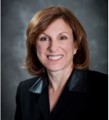 Donna F. Dodson, EvolutionQ - Member of the Programme Committee
Donna F. Dodson, EvolutionQ - Member of the Programme Committee
Donna F Dodson is a senior strategic advisor at evolutionQ working with the leadership team on the strategic direction of the company to help scale their technology offerings around quantum delivery networks. Donna has an extensive background in cybersecurity, standards, risk management and cryptography. She held technical and policy leadership positions at the National Institute of Standards and Technology and the US Department of Commerce. Donna led NIST’s cybersecurity program to develop standards, guidelines, best practices and resources. She was the inaugural director of the National Cybersecurity Center of Excellence. As the Commerce Department’s cybersecurity advisor, Donna counseled the Secretary and represented the department in strategic policy decision-making forums.
Emmanuelle Dottax, IDEMIA
Emmanuelle Dottax is a cryptography and security architect in the R&D department at IDEMIA, with broad expertize covering cryptography and security, from implementation to end-to-end solutions. Emmanuelle’s primary focus is on cryptographic protocols accross all types of environments, ranging from constrained systems to general-purpose applications, with an emphasis on designing and validating secure solutions that align with emerging standards.
 Vincent Dunning, TNO
Vincent Dunning, TNO
Vincent Dunning has a background in cybersecurity. Since four years, he is a researcher in the Applied Cryptography & Quantum Algorithms department at the Dutch Organization for Applied Scientific Research (TNO). There, he specializes in multi-party computation and post-quantum cryptography. He is one of the authors of the PQC migration handbook, contributing to both the first and the second edition. Next to that, he performs research on quantum risk assessments and guidance for the selection of PQC algorithms for specific use-cases.
 Angela Dupont, BIS
Angela Dupont, BIS
Angela Dupont is an International Innovation Expert with 20 years of experience in the banking industry. She is currently an adviser of the Eurosystem Centre of the Bank for International Settlements Innovation Hub. Prior to this role she has been working at the ACPR (The French Prudential Supervision and Resolution Authority) specialising on Fintechs. Before that she has been a team leader in different departments of Banque de France, including in a credit rating department. She has been invested on gender equality networks since 2016. Mrs Angela Dupont holds an Executive MBA from ESSEC Business School and a Master's Degree of banking. She is a member of Le Club de Paris des Directeurs de l'Innovation.
Stephan Ehlen, BSI (Germany)
Dr. Stephan Ehlen is a cryptography expert at the German Federal Office for Information Security (BSI) since 2021. He works on post-quantum cryptography with a focus on lattice-based schemes, and is editor of an amendment to ISO/IEC 18033-2 which will include post-quantum key encapsulation mechanisms and a member of the French-Germain-Dutch co-chairing team for the EU-workstream on PQC. Stephan holds a Ph.D. in pure mathematics (Number Theory) and is an assistant professor (Privatdozent) in Mathematics at University of Cologne in Germany.
 Verónica Fernández, Spanish National Research Council (CSIC)
Verónica Fernández, Spanish National Research Council (CSIC)
Verónica Fernández, a principal researcher at the Spanish National Research Council (CSIC), leads the Cryptography and Information Security Group at the Institute of Physical and Information Technologies. With over two decades of experience in high-frequency Quantum Key Distribution (QKD) technologies, she directs the CSIC’s Quantum Communication Laboratory. Her research integrates experimental lines of QKD for applications in both aerial/space and terrestrial fiber networks, including the development of innovative quantum communication protocols. Verónica’s extensive publication record, coordination of the Interdisciplinary Thematic Platform on Quantum Technologies (QTEP) at CSIC, and advisory role in the European Space Agency’s Scylight program highlight her leadership in advancing quantum technologies. Additionally, she has founded a start-up, Q-Dynamics, showcasing her dedication to bridging cutting-edge research with practical applications in the field of quantum communications.
 Juan Carlos Fernández Jara, Entrust
Juan Carlos Fernández Jara, Entrust
Juan Carlos Fernández is Director, AI & Technology Development at Entrust with 25 years of experience in cryptography, PKI services and, specially, in the digital signature ecosystem. He currently leads the innovation department in the Office of the CTO of Entrust where he is in charge of identifying and carrying out innovative projects to improve digital security services. Some of the projects are Post-Quantum Cryptography, Decentralized Identity, AI/ML to enhance digital security and Qualified Electronic Signatures for eIDAS2 among others. He is also lecturer at the "Universitat Oberta de Catalunya" in Barcelona teaching in the Master in Cybersecurity and Privacy.
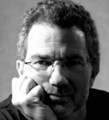 Jaime Gómez García, Banco Santander – Member of the Programme Committee
Jaime Gómez García, Banco Santander – Member of the Programme Committee
Jaime Gómez García is a recognized expert in telecommunications, blockchain, and quantum technologies, with an extensive professional background within the financial sector. His contributions as a disseminator of quantum technologies and their consequential influence on enterprises, notably within the financial domain, have garnered him recognition as a LinkedIn Quantum Top Voices in 2022, 2023 and 2024. Currently, Jaime serves as the Head of Quantum Technologies at Banco Santander, where he focuses on leveraging quantum computing for business benefits and addresses the challenges of quantum threats to cryptography. Additionally, he holds the role of Chair of the Steering Committee at the Quantum Safe Financial Forum, working to facilitate collaboration and coordinate the transition to quantum-safe cryptography within the financial sector.
 Thorsten Groetker, evolutionQ
Thorsten Groetker, evolutionQ
Thorsten Groetker is a founding member of evolutionQ’s German R&D team. He holds a PhD in EE from Aachen University of Technology and has subsequently served in various engineering and management roles including Principal Engineer at Synopsys and CTO at Utimaco. Dr. Groetker is a co-author of “System Design with SystemC”, “The Developer’s Guide to Debugging” and “Post-Quantum Crypto for Dummies”. He works as business and technology consultant in the areas of semiconductors and cybersecurity.
 Esther Hänggi, Lucerne University of Applied Sciences and Arts
Esther Hänggi, Lucerne University of Applied Sciences and Arts
Esther Hänggi is a professor at the Lucerne University of Applied Sciences and Arts, Co-head of the Applied Cyber Security Research Lab and member of the Swiss Quantum Commission. She holds a Masters in Physics from EPF Lausanne and a Doctorate in Computer Science from ETH Zurich, specializing in quantum key distribution. During her career of almost two decades she has worked both in academic positions and in industry. Her current work aims at bringing theory and practice in quantum cryptography closer together and improving the security of real-world quantum cryptographic systems.
 Francisco José Herrera Luque, European Central Bank
Francisco José Herrera Luque, European Central Bank
Francisco José Herrera Luque (Paco Herrera) is a Cybersecurity and Operational Risk Expert in the Directorate General Market Infrastructures of the European Central Bank and Payments and Professor of the Master in Cybersecurity of Universidad Pontificia de Comillas (ICAI) in Madrid. Having a Master Degree in Electrical Engineer from Universidad Carlos III de Madrid, he has more than 10 years of experience in cybersecurity in different roles and positions, covering the three lines of defence and comprising academia – as a researcher in Universidad Carlos III de Madrid and Deutsche Telekom Laboratories, - security operations – as security engineer in Airbus Military, consultancy and managed security services – as team lead and manager in Deloitte Cyber, and Central Banking – as IT risk examiner for the Single Supervisory Mechanism in Banco de España and cybersecurity expert for the internal cybersecurity in Banco de España and for the security governance in the European Central Bank.
 James Howe, SandboxAQ
James Howe, SandboxAQ
James Howe is a Staff Research Scientist and technical lead in the Cybersecurity Group. He works on the research and development of post-quantum cryptography and addresses issues in integrating PQC into the real-world. He is a co-author of the SDitH signature scheme candidate which is a part of the NIST PQC process for additional signature schemes. He is Vice-Chair of the ETSI QSC working group. His research interests range from optimizing designs in software and hardware, protocol design, side-channel analysis and countermeasures, and more.
 Bruno Huttner, ID Quantique
Bruno Huttner, ID Quantique
Bruno Huttner is the Director of Strategic Quantum Initiatives, and a Quantum Key Distribution Expert at ID Quantique. He is also the co- chairman of the Quantum-Safe Security Working Group (QSS WG) organized by the Cloud Security Alliance. Bruno joined ID Quantique in 2014, participating in business development and product management in the Quantum Security division. He then started the space programs, aiming at developing quantum key distribution globally, using satellites. Bruno is an engineer (Ecole Centrale Paris) and a physicist (PhD from the Technion, Israel Institute of Technology).
Laima Jančiūtė, University of Amsterdam
Laima Jančiūtė is a postdoctoral researcher at the Institute for Logic, Language and Computation, University of Amsterdam, and works for the project Quantum Impact on Societal Security. Laima was also a postdoctoral researcher at the Institute for Information Law, University of Amsterdam, where her work focused on the governance of post-quantum cryptography transition in the EU. Laima holds a PhD (with distinction) from the University of Westminster with a thesis on the policy process of adoption of the GDPR examining the actors and factors that shaped the formulation of this major piece of legislation. She has a background in political science and public administration. Her research interests revolve around privacy and data protection, fundamental rights, technology policy, history and philosophy of technology, EU politics and governance, international relations, etc. Among others, she has previously worked as a research fellow at the Communication and Media Research Institute, University of Westminster, and as an associate professor of public policy at Vilnius University.
 Younghee Kim, National Information Society Agency (NIA)
Younghee Kim, National Information Society Agency (NIA)
Dr. Younghee Kim, Director of the Quantum Technology Fostering Center at South Korea’s National Information Society Agency(NIA), addresses the challenge of integrating quantum technologies into national ICT infrastructure. This transition is crucial for enhancing communication security and scalability in an era of escalating cyber threats and data demands. Her work focuses on pioneering an open quantum testbed and developing a quantum cluster ecosystem to drive quantum technology commercialization. These initiatives foster collaboration among researchers, industry, and policymakers, enabling innovation and practical deployment. Dr. Kim’s projects have demonstrated the feasibility of incorporating quantum technologies into existing systems, though challenges remain in standardization, scalability, and cost management. With successful pilots in 5G/Open RAN networks and next-generation optical communications, her initiatives are at an advanced maturity level. Through her leadership, South Korea is emerging as a global leader in quantum innovation, emphasizing technological advancement and collaborative growth.
Volker Krummel, Utimaco
Volker Krummel is the “Chapter Lead PQC” at Utimaco, a leading provider of cyber security solutions. Before joining Utimaco Volker worked with governmental institutions and in the financial industry, designing cryptographic protocols and solutions for more than 20 years. Volker holds a PhD in cryptography and is still active in the research of certain topics of cryptography.
 Stefan Lespezeanu, Honeywell
Stefan Lespezeanu, Honeywell
Senior Offering Manager at Honeywell, where he oversees the general management and go-to-market strategies for the quantum communications product line. His responsibilities include the execution and commercialization of space-based Quantum Key Distribution (QKD) through advanced quantum-enabled payloads, ground stations, and comprehensive end-to-end missions. Stefan's work enables Quantum as a Service (QaaS) offerings, driving innovation and expanding Honeywell's footprint in the quantum communications sector.
 Xinhua Ling, Amazon Web Services
Xinhua Ling, Amazon Web Services
Dr. Xinhua (Frank) Ling is with the Quantum Networks Engineering group in AWS, and represents the company to contribute to QKD standardization efforts at ETSI. His daily work addresses engineering challenges in utilizing QKD technologies for secure communications at scale. Xinhua was the systems architect and technical project lead of the OpenQKDnetwork project maintained by IQC. In earlier days of his career, Xinhua invented technologies used by 200+ cellular operators and served more than one billion mobile phone users around the world. Xinhua loves reading and practices Tai-Chi in his leisure time.
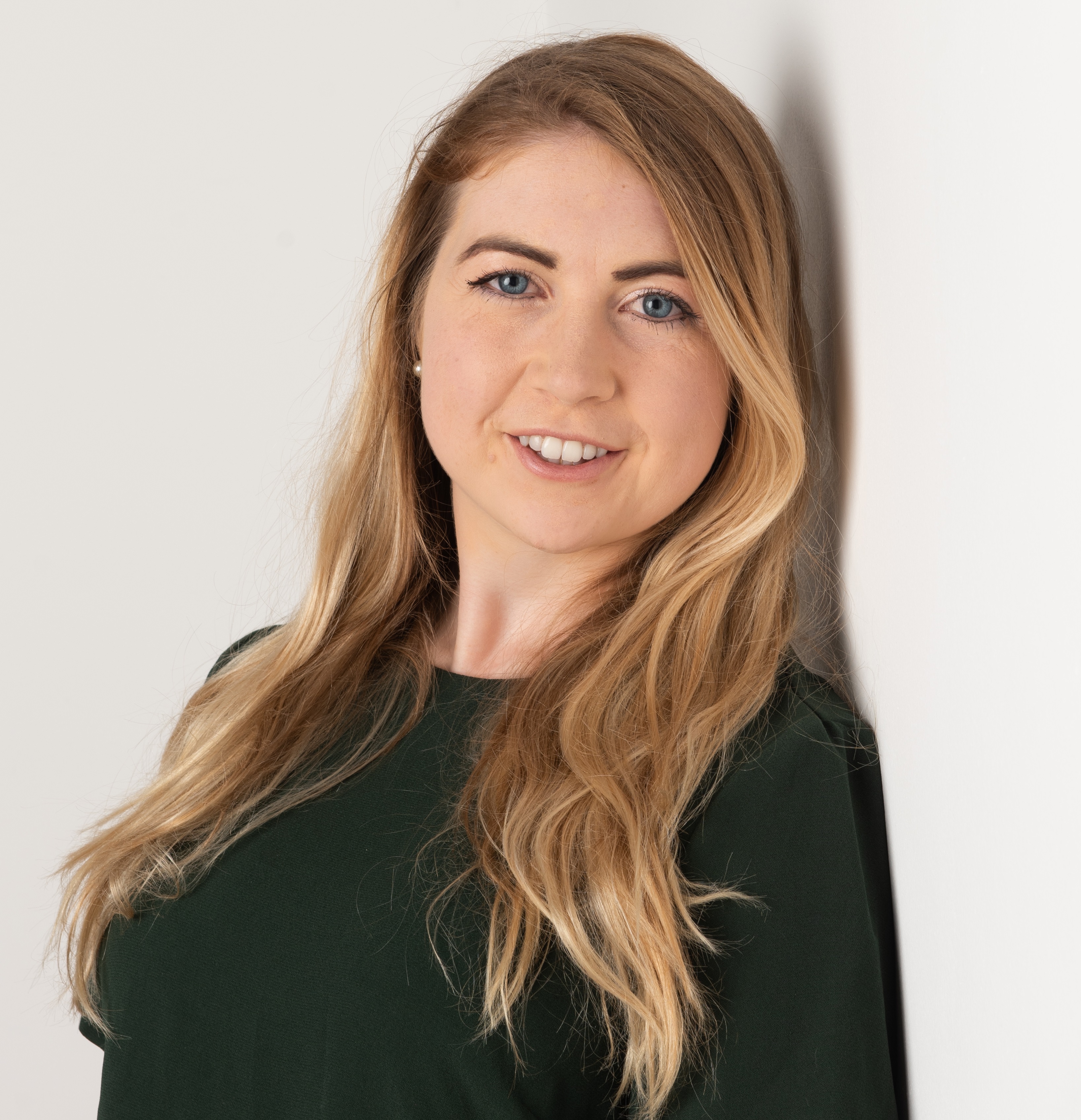 Sarah McCarthy - Institute for Quantum Computing (UWaterloo) - Member of the Programme Committee
Sarah McCarthy - Institute for Quantum Computing (UWaterloo) - Member of the Programme Committee
Sarah McCarthy is a quantum-secure cryptography specialist with a focus on practical solutions for current and future communications networks. As Cryptographic Strategist at evolutionQ, she drives the development of quantum-safe network solutions and raises awareness about the importance of preparing for the quantum computing era. This is supported by her Research Associate role at the Institute for Quantum Computing (IQC), part of University of Waterloo, which allows her to keep in touch with the progression of quantum-safe solutions, from theory to deployment. Sarah earned her PhD from Queen’s University Belfast and then completed a Postdoctoral Fellowship at IQC.
Vicente Martin, Universidad Politécnica de Madrid - CCS - Member of the Programme Committee
Vicente Martin, Full Professor at the Technical University of Madrid, Deputy Director of the Center of Computational Simulation, coordinates the Research Group on Quantum Information and the DIANA NATO Test Centre on Quantum Communications at Madrid, the current Madrid Quantum Communications Infrastructure and Spanish national program on quantum communications. He also works in standards on QKD. Co-founder of the Industry Specification Group on Quantum Key Distribution and its vice-chair at ETSI. Convener of the Quantum cryptography and Communications Workgroup of the JTC-22 at CEN. His main research interest is the integration of Quantum Communications in Telecommunications Networks and security infrastructure.
 Richard Marty, LGT Financial Services AG
Richard Marty, LGT Financial Services AG
Richard Marty is Chief Technology Officer (CTO) at LGT. With extensive experience in the financial technology sector, Richard plays a crucial role in driving the company’s technological advancements, innovation and cyber resilience. He oversees operations, development and implementation of cutting-edge technology solutions that enhance LGT’s banking and investment services.
 Dustin Moody, NIST
Dustin Moody, NIST
Dustin Moody is a mathematician at the Computer Security Division, National Institute of Standards and Technology (NIST), and he leads the post-quantum cryptography project at NIST, Gaithersburg, MD 20877 USA. His research interests include elliptic curves and their applications in cryptography. Moody received a Ph.D. from the University of Washington.
 Oleg Nikiforov,Deutsche Telekom
Oleg Nikiforov,Deutsche Telekom
Dr. Oleg Nikiforov is a solution designer for quantum safe networks at the Deutsche Telekom. During his PhD at Technical University of Darmstadt he worked on field tests of QKD systems and their integration into the telecom environment. His interests include different aspects of quantum safe communication in particular hybrid (PQC/QKD) approaches for secure key distribution.
 Michael Osborne, IBM Research
Michael Osborne, IBM Research
Michael Osborne has a global role as CTO for IBM Quantum Safe and also leads the cryptographic research activities at the IBM Research Center in Rüschlikon, Switzerland. His current focus includes advancing new generations of advanced cryptography, such as those selected by NIST as the next generation of PQC algorithms. He also leads efforts to develop technology to migrate cryptography to these new standards and impact IBM’s products and services. His activities include advising national security organizations and standards bodies in the journey to becoming quantum-safe. Michael holds over 80 security and cryptography-related patents.
 Mark Pecen, Approach Infinity Inc. , Member of the Programme Committee
Mark Pecen, Approach Infinity Inc. , Member of the Programme Committee
Mark Pecen is a senior technology executive for Approach Infinity, Inc., and a general partner of a venture capital fund. Pecen is an inventor on more than 100 fundamental patents in wireless communication, networking and computing, and is a graduate of the University of Pennsylvania, Wharton School of Business and the School of Engineering and Applied Sciences. He was awarded the titles of Distinguished Innovator and Science Advisory Board member by Motorola for his work on GSM, GPRS and EDGE cellular technologies at ETSI. He led work in 3GPP for Motorola on UMTS 3G, and as Senior Vice President, R&D for BlackBerry, he contributed to 4G-LTE cellular technology and standards and spectrum management for ITU. In 2015, Pecen co-founded the ETSI TC Cyber, Working Group for Quantum Safe Cryptography and chaired the group for the first 5 years, producing some of the very earliest global standards on the topic.
 Peter Pessl, Infineon Technologies
Peter Pessl, Infineon Technologies
Peter Pessl is a security architect at Infineon Technologies, where he develops concepts for hardened implementations of quantum-secure cryptography. Before that, he obtained his PhD and worked as a Postdoc at Graz University of Technology, where his research focused on analyzing implementation-security aspects of lattice-based cryptography, e.g., ML-KEM, ML-DSA, and their respective predecessors. He continuous to perform research in this direction and is an active member of the academic implementation-security community.
Bertram Poettering, IBM Research Europe - Zurich
Bertram Poettering is a researcher staff member affiliated with IBM Research Europe -- Zurich. The research he conducted in the past 15 years covers all aspects of practical cryptography, ranging from symmetric to asymmetric and from foundational work to implementational aspects, and resulted in 60 peer-reviewed publications at international venues.
 Ettore Pulieri, Telecom Italia Sparkle
Ettore Pulieri, Telecom Italia Sparkle
Ettore Pulieri is a Product Manager in Sparkle's Networking, Cloud, Security & Identity Solutions unit. He manages a diverse portfolio of services, including global connectivity and ICT, designed to meet enterprise needs with top market performance. Ettore specializes in L3 and Internet Access products, driving innovation in post-quantum technologies through proof-of-concept projects and managing the development of multicloud solutions tailored for enterprise clients. He actively contributes to industry standards as part of the MEF and provides strategic sales support, ensuring technical and commercial alignment during bids and tenders. Working in a hybrid environment from Rome, Ettore is dedicated to delivering secure, scalable, and innovative networking solutions that enable enterprises to thrive in a rapidly evolving digital landscape.
Wei Qi, CAS Quantum Network Co. Ltd.
Dr. Wei Qi is the CEO of CAS Quantum Network Co., Ltd, and the Chairman of China Communications Standards Association Special Task Force (ST7) on Quantum Communication and Information Technology. Dr. Qi is working on the industrialization of quantum communication technology, the integration of quantum communication and information and communication technology, as well as the domestic and international standardization of quantum communication. Dr. Qi has successively promoted the establishment of the China Quantum Communications Industry Alliance and Quantum Information Association of China (QIAC).
 Tony Rosati, evolutionQ
Tony Rosati, evolutionQ
Tony Rosati is Vice President of Product Strategy and Business Development at evolutionQ, where he leads the deployment of cutting-edge quantum-safe technologies. A distinguished fellow of the Center for Applied Cryptographic Research (CACR) at the University of Waterloo, he brings extensive expertise in applied cryptography and telecommunications to the quantum security landscape.
 Skip Sanzeri, QuSecure
Skip Sanzeri, QuSecure
Skip Sanzeri is a highly successful entrepreneur with 5 successful exits, including one IPO. Skip is the Founder and COO at QuSecure leading branding, go to market and partner efforts, and is an industry leader having keynoted and spoken and a variety of industry conferences. Skip also co-authored The Quantum Design Sprint, a book which outlines methodologies to develop quantum computing applications.
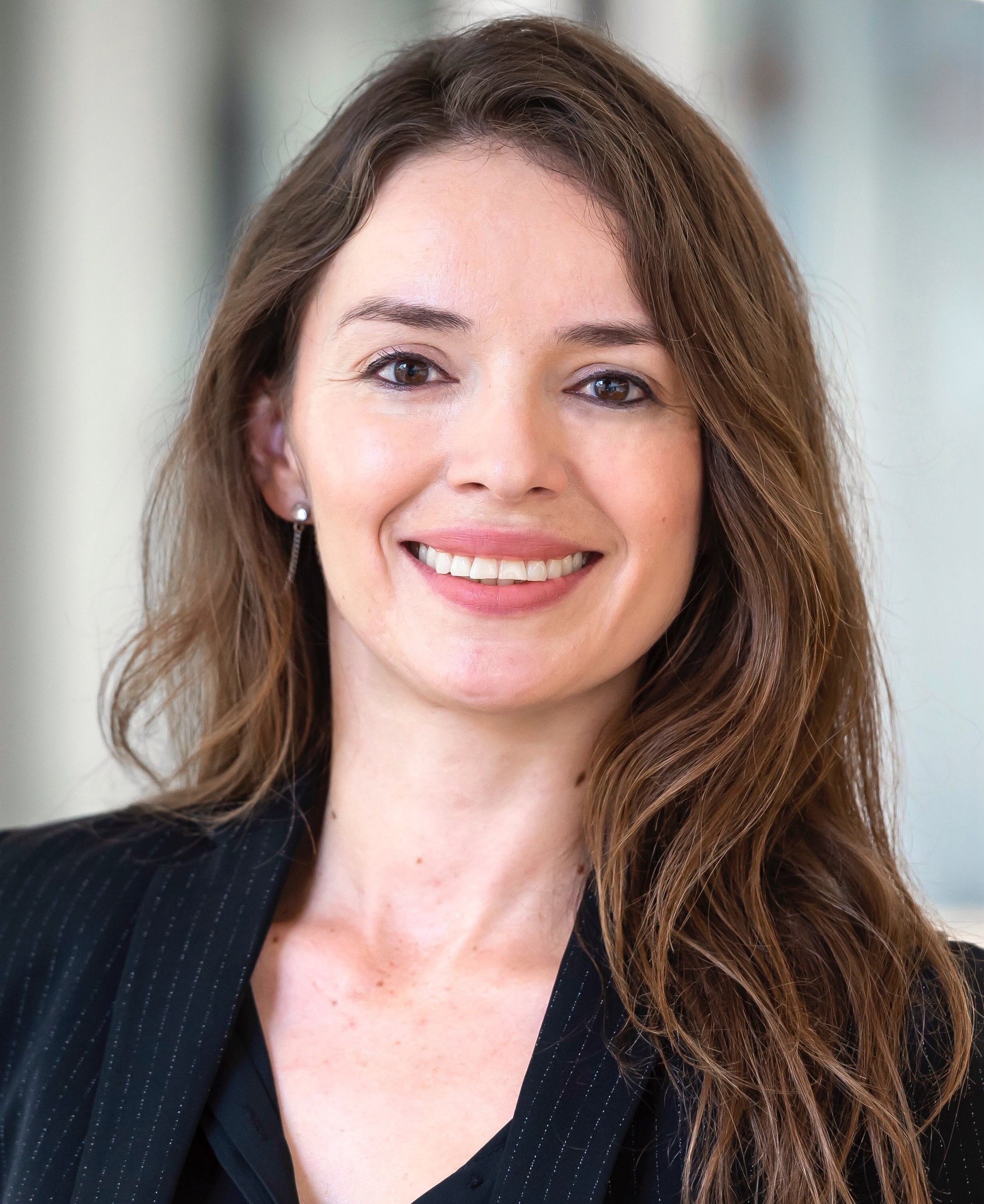 Johanna Sepúlveda Airbus - Member of the Programme Committee
Johanna Sepúlveda Airbus - Member of the Programme Committee
Johanna Sepúlveda received her M.Sc. and Ph.D. degrees in Electrical Engineering – Microelectronics by the University of S ̃ao Paulo, Brazil. Currently she holds a position as the Airbus Expert on Quantum-Secure Technologies, being Chief Engineer of different quantum initiatives such as EuroQCI. Also she is a member of the Strategic Advisory Board of Quantum Technologies for the European Commission and leader of the Quantum Strategic Industry Roadmap at QuIC (Quantum Industry Consortium). She has more than 15 years of experience in R&T and R&D in the area of security, networked systems, HPC and quantum technologies.
 Christoph Striecks, AIT Austrian Institute of Technology
Christoph Striecks, AIT Austrian Institute of Technology
Dr. Christoph Striecks, a cryptographic expert, is a member of the cryptography group at AIT. His professional focus is on cryptographic technologies required by quantum-safe systems, particularly PQC and combinations with QKD. He received his Ph.D. in cryptography from the Karlsruhe Institute of Technology (KIT) in Germany in 2015. His research interests include advanced cryptographic security measures for key exchange, with a focus on hybridization techniques for PQC/QKD for secure quantum-safe communication. He has been a key researcher in several national and international projects on PQC and QKD. He is an active member of CEN/CLC JTC 22/WG4, ETSI, and IEEE, and received a career grant of the Austrian Research Promotion Agency.
 Marios Thoma, Cyberecocul
Marios Thoma, Cyberecocul
Dr. Marios Thoma is a retired military officer, in the rank of Colonel in signals. He graduated from the Hellenic Military Academy and joining the National Guard of Cyprus in 1997. He holds a Master of Science degree in communications and computer science from the University of Athens, Greece, and is a graduate of the Hellenic Military School of Signals Officers, specializing in Telecommunications and Electronics. In 2018, he obtained his PhD degree from the Department of Electrical and Computer Engineering at the University of Cyprus. His research focuses on cyberspace defence, particularly on DDoS and Advanced Persistent Threats (APTs). He has experience in strategic, operational, and technical endeavours within both national and EU contexts in the fields of Information Assurance, Cybersecurity, Space, DevSecOps, Quantum, Data and AI Operations. He is CEO of the Cyberecocul Global Services, a newly established start-up. He is National Representative of the Cyprus Organisation for Standardisation (CYS) in the ETSI/SAI-QKD and CEN/CLC/JTC21-JTC22 standardization committees.
 Gamze Tillem, ING Bank
Gamze Tillem, ING Bank
I work at the CISO office of the ING Bank as a security architect. Previously, I worked at the innovation team of ING Bank for four years as cryptographer, where we worked on implementation of cryptographic blocks in innovative systems, like blockchains, for confidentiality. I obtained my Ph.D. degree from Delft University of Technology in the field of applied cryptography.
 Lory Thorpe, GSMA
Lory Thorpe, GSMA
Lory Thorpe is an Executive leader with over 20 years global experience in telecommunications, security and digital transformation, with a technology, cybersecurity and innovation background. Lory is a Strategy Advisor within IBM Research, where she is focusing on the Quantum Safe for industries and ecosystem partnership agenda. She is the Chair of the GSMA Post Quantum Telco Network Task Force, which focuses on preparing the Telco industry for the Quantum Era. Her previous experience includes operator and technology vendor roles with global telecommunication companies, leading innovation to commercialisation programmes. Lory has a background in engineering and cybersecurity and she is passionate about driving the use of technology for positive societal impact. She is also a strong advocate for workforce diversity and inclusion. Lory is originally from Toronto, Canada and lives in London, UK with her family. https://www.linkedin.com/in/lorythorpe/
 Anita Wehmann, Ministry of the Interior and Kingdom Relations (NL)
Anita Wehmann, Ministry of the Interior and Kingdom Relations (NL)
Anita Wehmann is Program manager Digital Resilience Central Dutch Government at the Ministry of the Interior and Kingdom Relations and she initiated the Dutch Quantum secure cryptography Gov. program in 2022. She is also a member of the French-Germain-Dutch co-chairing team for the EU-workstream which aims to achieve the goals of the EU Recommendation on a Coordinated Implementation Roadmap for the transition to Post-Quantum Cryptography. She has been working in the field of Cybersecurity and integrated security since 2009 for several organizations within the Dutch government. It is her passion is to make the Dutch Government and society more cyber resilient through collaboration.
Colin Whorlow, NCSC - Member of the Programme Committee
Colin Whorlow has worked in the UK National Cyber Security Centre (NCSC), and its predecessor CESG, for over 20 years. As Head of International Standards he has spearheaded NCSC’s active involvement in global security standards work including within ETSI and 3GPP. He convened the ETSI Quantum Safe Cryptography ISG, now a Working Group within TC Cyber, and has also chaired the group – and he is a Programme Committee member for the annual ETSI/IQC Quantum-safe Cryptography workshops. He also convened the ETSI Securing AI ISG, now TC SAI. Colin was a long-time member of the Management Board of ENISA, and is a former chair of the CCRA Management Committee. In previous roles he led CESG’s engagement on EU and NATO information assurance issues. Colin also chaired the Information Security Technical Working Group at the Wassenaar Arrangement for some years. Colin was awarded an OBE for services to National Security in 2024.
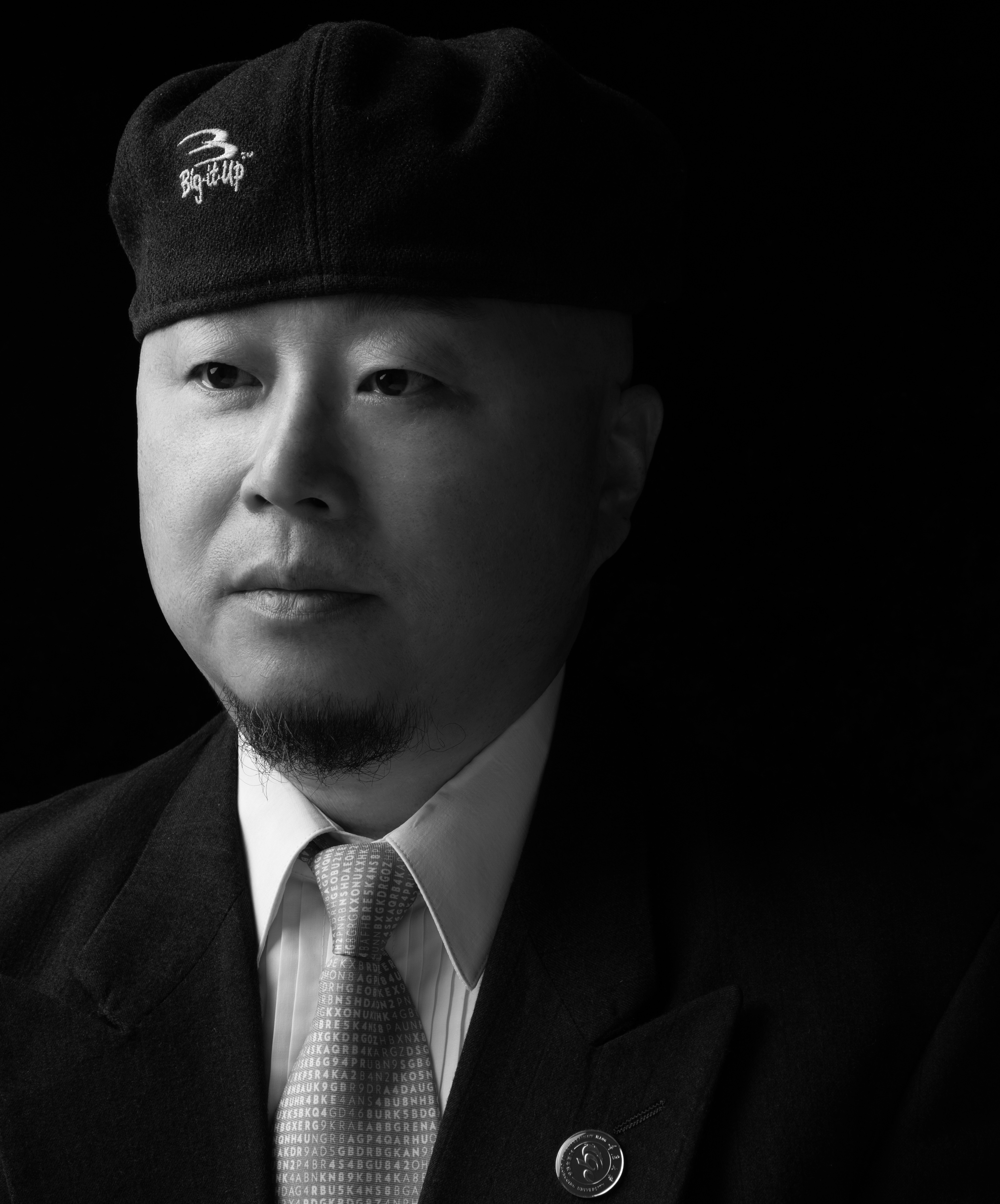 Hong Xiang - Chongqing University - Member of the Programme Committee
Hong Xiang - Chongqing University - Member of the Programme Committee
Prof. Hong Xiang is the member of National Cryptography Standardization Technical Committee, China. He also serves as the vice director of the Key Laboratory of Dependable Service Computing in Cyber Physical Society (Chongqing University), Ministry of Education, China. He received his Ph.D. from the University of Alberta, Canada in 1998. His area of research deals with applications in PQC.

